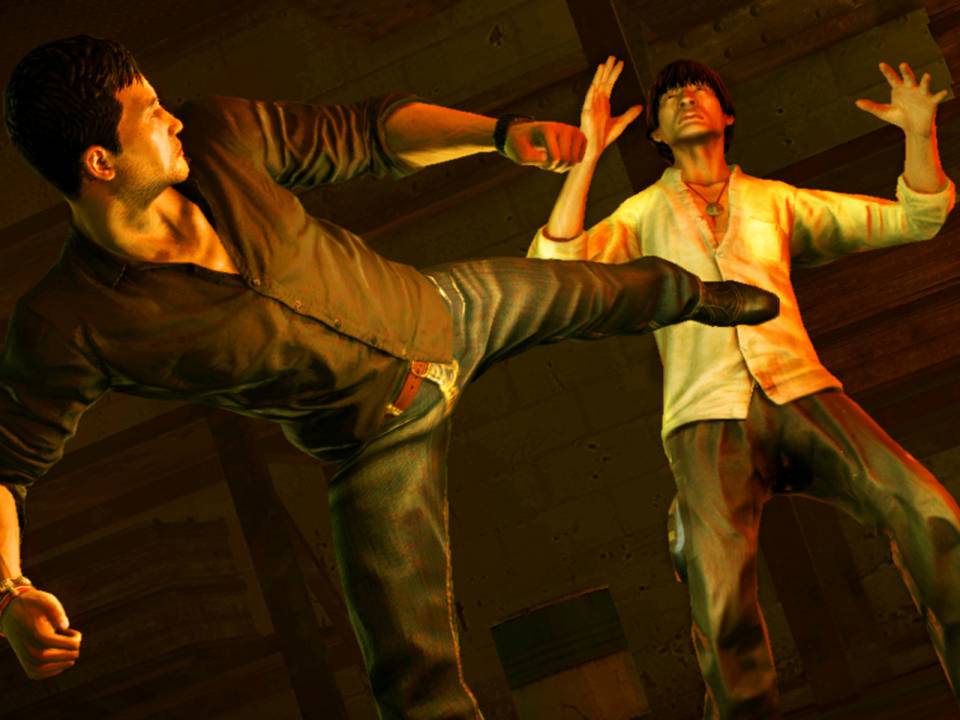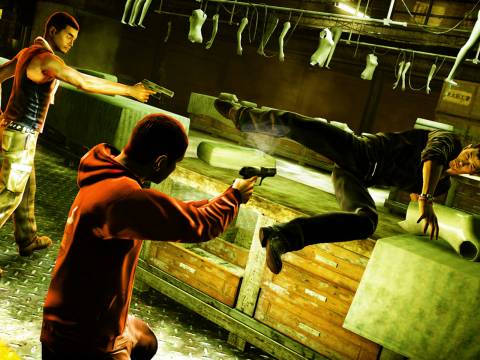There was a collective feeling of "er, why?" when Activision announced True Crime, a series no one held much nostalgia for since it disappeared, was getting a reboot. Perhaps, like Bethesda's decision to move forward with Prey 2, the company simply felt better with a brand, no matter its previous reputation.
Then, after years of development at United Front Games and several notable delays, Activision canceled True Crime Hong Kong in early February. Gamers weren't the only ones caught off guard; at the time, I was senior editor for EGMi and we'd just ran a digital cover story on the game, where we'd sent a writer to Canada to talk with the development team. The cover story was published and only weeks later, Activision decides to cancel the game. The official website for the game is still up, as though it still lives on.
I've run two stories so far based on two internal Activision memos that were passed to me. Both memos were released to employees not long after the announcement became public. I wasn't sure if enough people cared about True Crime Hong Kong to even run a third and final piece, but the surprisingly honest comments from one of the executives involved in the cancellation struck me as worthy of sharing.

== TEASER == "We are ceasing production on True Crime: Hong Kong," explained COO Thomas Tippl. "While we believe that True Crime would have been a good game, we do not believe that it would have ranked as a top title in the competitive open world genre. Unfortunately, despite significant investment, True Crime was not on track to compete at the highest levels. Given the market dynamics described above, where only the very best titles succeed, we decided to stop development and allow the organization to focus on the many opportunities which lie ahead of us and require our full attention in 2011."
There was a small Internet campaign to save the game and rumors other publishers were looking at picking it up but nothing materialized. And while the official website has not been updated to reflect the cancellation (one would hope GameStop is no longer accepting pre-orders!), the developers at United Front Games, also responsible for Sony's ModNation Racers, did try to explain what happened:
Tippl's not the reason I wanted to publish this. His comments are expected boilerplate regarding the cancelation of a high-profile game--significant investment, market dynamics, competitive genre. Yada."We are sorry we did not get a chance to complete this project with Activision, but we understand why. We are both committed to doing quality games and nothing less. Maybe we will have a chance to work together in the future, but in the meantime we are setting our creative sights on a different horizon. You can keep up with the latest developments at UFG here on our site."
Let's instead turn to Eric Hirshberg, the CEO of Activision Publishing.
"On my second day at the company, I stood up and said that we want to focus this organization around creative excellence," said Hirshberg. "The decision to stop production on True Crime is based solely on that focus."

"As many of you on the team know, I have a lot of heart for this game," he added. "And there are many great things about it. Stopping now is a hard pill to swallow, because a lot of blood, sweat and tears have gone into getting the game this far. However, after two pushed deadlines and a huge increase in the original production budget, we needed to take a clear-eyed look at the reality of this game’s potential."
The current evidence suggests that development was still going until the moment of cancellation. Perhaps Activision was faced with the decision of more delays and a continually expanding budget or cutting their losses and moving on. No doubt, Activision skeptics will take issue with the phrasing of "our most optimistic internal projects" (read: sales numbers), but since no one's played the game, who's to say?
"Even our most optimistic internal projections showed that True Crime Hong Kong was not going to be at or near the top of the competitive open world genre," concluded Hirshberg. "In an industry where only the best games in each category are flourishing, and for a game with a budget of this size, to be blunt, it just wasn’t going to be good enough."
Until next time, True Crime.